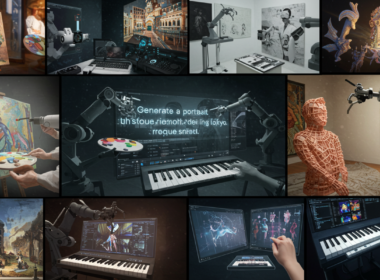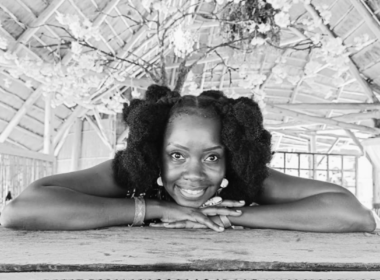This is the follow-up to our interview with Eric. In part I Eric shared with us the story about his Asperger diagnosis, how he perceives the world and he tells us about the challenges he faced at school and in work environments.
In this second part of the interview, we will hear about his family & friendships, the things he enjoys doing in his spare time, the challenges he faced being a father, amongst other things.
FAB: Was your family supportive towards helping you to excel within your situation?
ERIC: Yes, over supportive I think. It’s well known that it takes about 10 years for someone to fully accept their diagnosis. For me, it took about 15 years.
FAB: So this is common, it wasn’t just you that fought your diagnosis.
ERIC: Yes, that’s actually quite common. My family was always very supportive of me. I was unfortunately not able to accept it for many years.
FAB: Has your diagnose affected your personal relationships? What are your greatest challenges?
ERIC: Hm… Knowing the fact that I am different and accepting myself, those were big challenges in my personal relationships and I think it mainly affected my love relationships. It’s not necessarily hard for me to make social contact with people, but intimate relationships are a different thing. When it comes to relationships, I don’t really know what’s expected of me. I am a very caring person. I like to give. Though I don’t know what the expectations are that others have of me.
FAB: What kind of role model has inspired you to succeed in your life the most?
ERIC: I wouldn’t say I have a role model, no. I think believing in myself has inspired me the most. I think that’s the way I live. Although there have been a few people in my life that have given me some great tips and tricks on how to survive.
FAB: Looking back now, is it easier to see the advantages and disadvantages you faced?
ERIC: Yes indeed! I came across a great coach who focused on my talents, on strengthening them as opposed to masking my shortcomings which I thought was great. I knew I had talents, but I discovered how to use them. I have quite an advantage since I am very adaptive, a trait not all autists share. I could combine the social skills with some typically autism-related traits such as seeing details, seeing certain connections other people can’t see or don’t pay attention to since they are wired in a different way.
FAB: You can spot patterns easily.
ERIC: Exactly. I can spot patterns and connections and I can see details. I also have a pretty decent memory.
FAB: I remember!
ERIC: I used to compete on a high level when it came to Football quizzes.
FAB: Do you have any long-lasting friendships and how have they influenced your life?
ERIC: Yes, I have one of these long-lasting friendships and a former relationship – actually the conductor of this interview.
I also have a few great friends in my life, and I am really happy about it and grateful for them. I have a great family as well. From both sides, it’s sometimes a challenge, but I think that is in every relationship, to some extent.
FAB: I always admired your close friendships, and I observed and compared relationships between the other guys and noticed that many of them are more superficial in a way. They didn’t dare to show the full spectrum of their vulnerabilities and emotions. What you have with your best friends is very different, very unique.
ERIC: I think that actually embraces the whole thought about autism. Because people diagnosed with autism, being it Aspergers or ‘classic autism’, are able to see ‘the world as it is.’ What I mean is that my brain is not instilled with social norms and values. What I believe is, apart from upbringing, that people have a certain sense of what they perceive as socially acceptable behaviour. A lot of people get stuck in focusing too much on social norms, both in their friendships and their relationships.
FAB: That friendship is under the eye of society, media, culture, etc. rather than what it really is.
ERIC: Exactly. I focus on the values of the people themselves. I think that’s a big difference. I don’t know if that’s an autism trait, it might be actually. But I feel that I see the ‘realness’ of the world.
FAB: You do see something very real, very unique about a person and you really nurture this and endear it. It’s something very sweet.
ERIC: Thank you.
FAB: How do you spend your time when you are not working?
ERIC: I like to cycle, I like to see friends, as a football enthusiast I love playing championship manager. I like to read from time to time, I LOVE music. I have a daughter who I love to see. I like to travel from time to time, I like being outside.
FAB: What’s your favourite music?
ERIC: Motown.
FAB: You also cook very well.
ERIC: I like cooking, yes. Thank you.
FAB: how do you balance your social and professional life?
ERIC: During times of Corona it’s been a bit harder, one of my hobbies is cycling. I used to be able to cycle to work all the time, which I loved. I cycle through any kind of weather, no matter if it was snowy, or rainy, or very sunny or very cold, I always cycled.
FAB: As we’ve heard you mention already, you are a father. Which impact did fatherhood have in your life in relation to autism?
ERIC: It was very overstimulating because I was finishing my bachelor’s degree at the same time. I wouldn’t say I am a very talented father by nature. Though once I have adapted to a role, it becomes easier. Especially the first few years were very much clouded by me being overstimulated and not knowing what the f*ck I should do.
FAB: Is it stressful for you now to spend time with your daughter?
ERIC: Not anymore. I love it! I can fully embrace it now.
FAB: We are almost at the end of the interview. Do you perceive being autistic as a superpower?
ERIC: Hm… No, not as a superpower. I perceive it as something that is part of me. If you know what it is, if you know the advantages and if you embrace it fully you might be able to have a slight edge in certain situations. It’s not a superpower or anything, no. It’s different.
FAB: Maybe the word is not a superpower but I always did see you as having something very, very special.
ERIC: Thank you. I see myself as a sincere person in a way that I don’t know how to act differently. I don’t possess a hidden agenda because I wouldn’t know how to. Another trait of autism is to have a very strongly developed sense of justice. That’s very characteristic, and problems ensue when justice wins by being able to adapt to a certain social situation. When certain behaviour is required of you or expected of you.
FAB: You are very authentic to me always.
ERIC: Yes! Authentic, that’s the word. I don’t know how to behave in a sociably expected manner, I am just authentic. And a lot of people like that actually. As I said before, I have very nice friends who love me the way I am and I love them the way they are. However, there are people who are not ready to accept full authenticity.
FAB: The deal with you is that you get what you see. You’re an open book in many ways.
ERIC: Yes, and in many ways, I am not.
FAB: Right. You are not playing a role.
ERIC: No.
FAB: I consider that to be a very amazing trait in people and what I actually look for in others. Being authentic, I think, is the only key to liberation, to be truly free, to be truly happy. To find your authentic self, accept it, express it and share it with the world.
ERIC: Yes.
FAB: Last question. Is there anything you would like to add to this interview so people may understand Asperger syndrome better or autism in general?
ERIC: What I would like to add is that many autistic people, I believe, see the world for what it is. And it doesn’t necessarily matter if you have Asperger’s syndrome or are a ‘classical’ autist. The way we perceive the world – people can learn from that! We are not hindered by behaviour that is deemed acceptable because we do not relate to that, we don’t have a feeling for that.
Let’s not be fooled by social behaviours but rather try to look at the REAL message behind, what people are trying to tell.
FAB: DEFINITELY! Thank you so much, Eric! It has been a real pleasure!
ERIC: You are welcome. Likewise.













